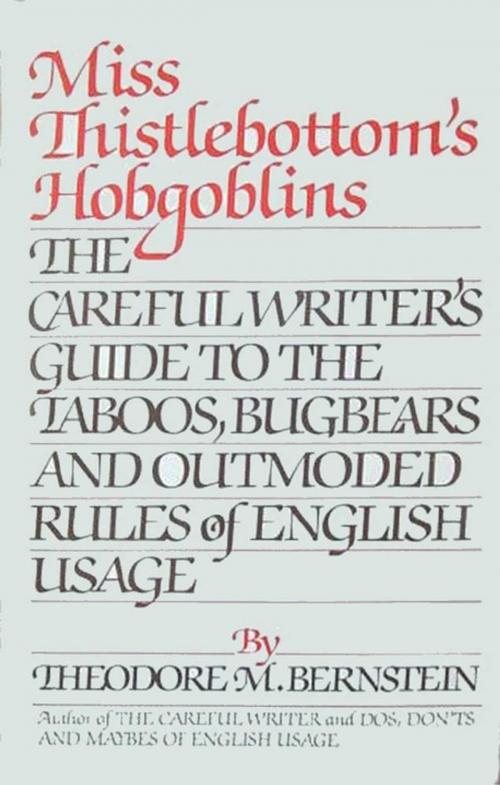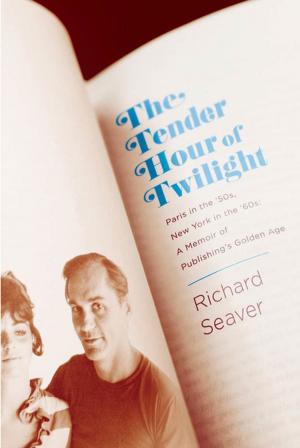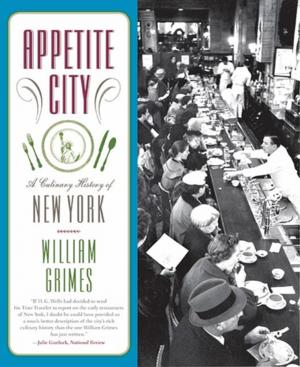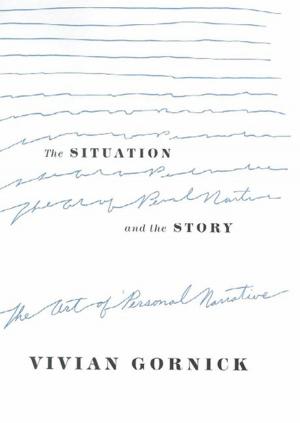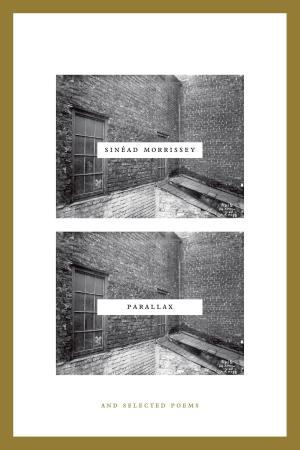Miss Thistlebottom's Hobgoblins
The Careful Writer's Guide to the Taboos, Bugbears, and Outmoded Rules of English Usage
Fiction & Literature, Literary Theory & Criticism, Reference, Nonfiction, Reference & Language, Language Arts, Writing & Publishing, Composition & Creative Writing| Author: | Theodore M. Bernstein | ISBN: | 9781466803701 |
| Publisher: | Farrar, Straus and Giroux | Publication: | January 1, 1971 |
| Imprint: | Farrar, Straus and Giroux | Language: | English |
| Author: | Theodore M. Bernstein |
| ISBN: | 9781466803701 |
| Publisher: | Farrar, Straus and Giroux |
| Publication: | January 1, 1971 |
| Imprint: | Farrar, Straus and Giroux |
| Language: | English |
Once you recall that Miss Thistlebottom was your elementary-school teacher who laid down all manner of taboos concerning the use of language, you will have an idea of what this book is about. In no sense permissive or radical, it topples the taboos that lack historical, logical or grammatical basis. It is a refreshing look at our living language, the perfect companion to the author's indispensable work, The Careful Writer.
Mr. Bernstein writes four letters to Miss Thistlebottom that divide the book into four sections: "Witchcraft in Words," "Syntax Scarecrows," "Imps of Idioms," and "Spooks of Style." Can there be more than two "alternatives"? You'll find the answer in the Words section. Can something "grow smaller"? Ditto. How about Split Infinitives: is it proper to ever split one? Is "none" invariably singular? Take a look in the Syntax section. Isn't it absurd to say "if worst comes to worst" rather than "if worse comes to worst" or to say "head over heels" rather than "heels over head"? The section on idioms will enlighten you on these "absurdities." And then, is a preposition a proper word to end a sentence with? The section on Style will show you that some authoritarians don't know what they are talking about and don't know what rules are for.
The scores and scores of entries in this book are crisp, lightly written and amply provided with illustrative material. They are designed to help anyone who writes anything--the student, the reporter, the copy editor, the professional writer-cast off the inhibitions and prohibitions that lack validity and cramp his writing style.
An Appendix includes some rare, out-of-print sources of some of the bogies: William Cullen Bryant's Index Expurgatorius for writers on the old New York Post, James Gordon Bennett's "Don't List" for writers on the old New York Herald and Ambrose Bierce's blacklist Write It Right.
Once you recall that Miss Thistlebottom was your elementary-school teacher who laid down all manner of taboos concerning the use of language, you will have an idea of what this book is about. In no sense permissive or radical, it topples the taboos that lack historical, logical or grammatical basis. It is a refreshing look at our living language, the perfect companion to the author's indispensable work, The Careful Writer.
Mr. Bernstein writes four letters to Miss Thistlebottom that divide the book into four sections: "Witchcraft in Words," "Syntax Scarecrows," "Imps of Idioms," and "Spooks of Style." Can there be more than two "alternatives"? You'll find the answer in the Words section. Can something "grow smaller"? Ditto. How about Split Infinitives: is it proper to ever split one? Is "none" invariably singular? Take a look in the Syntax section. Isn't it absurd to say "if worst comes to worst" rather than "if worse comes to worst" or to say "head over heels" rather than "heels over head"? The section on idioms will enlighten you on these "absurdities." And then, is a preposition a proper word to end a sentence with? The section on Style will show you that some authoritarians don't know what they are talking about and don't know what rules are for.
The scores and scores of entries in this book are crisp, lightly written and amply provided with illustrative material. They are designed to help anyone who writes anything--the student, the reporter, the copy editor, the professional writer-cast off the inhibitions and prohibitions that lack validity and cramp his writing style.
An Appendix includes some rare, out-of-print sources of some of the bogies: William Cullen Bryant's Index Expurgatorius for writers on the old New York Post, James Gordon Bennett's "Don't List" for writers on the old New York Herald and Ambrose Bierce's blacklist Write It Right.
